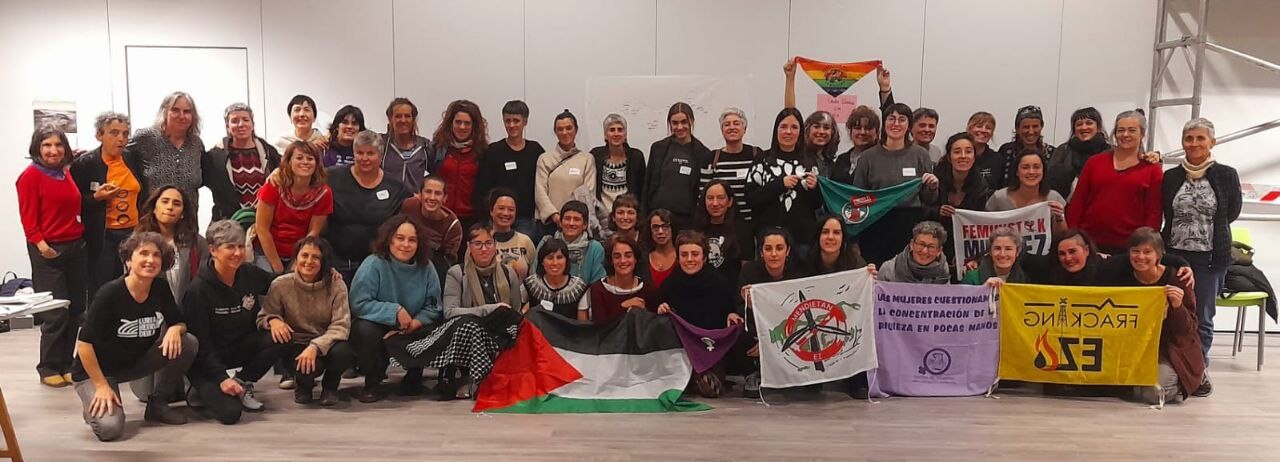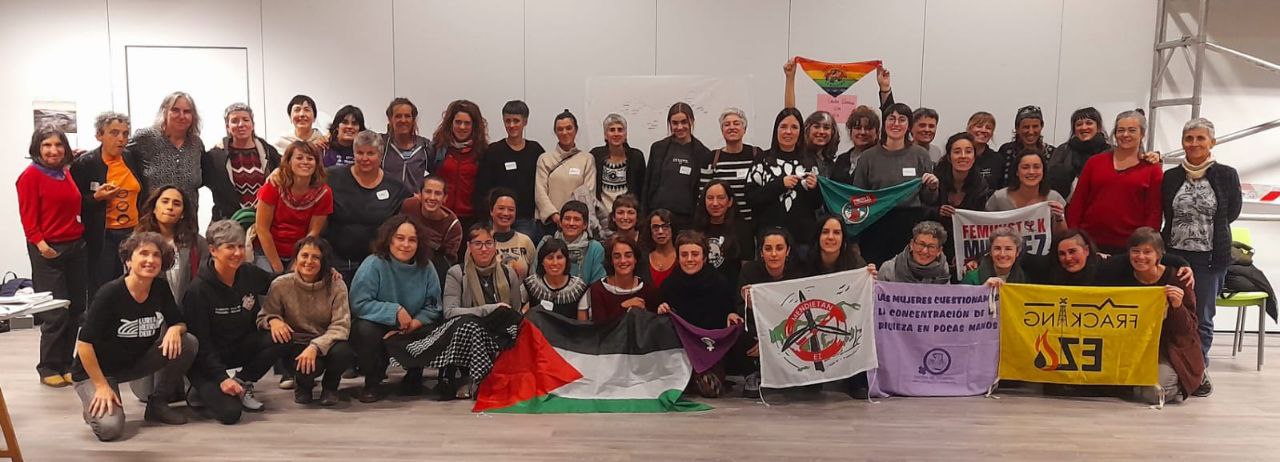What life in the center?
- Ecofeminism proposes a look and a struggle that articulates environmentalism and feminism. This is an interesting opening that has focused much of the development of ecofeminism. However, this openness also opens up challenges and complexities in which we believe it is necessary to deepen to expand the transformative potential of ecofeminism. That is why we refer to the privileges that can exist in ecofeminism and to the possible absences and oppression.

On the one hand, we consider it important to take into account the privileges between people and peoples. In this sense, ecofeminism endorses the struggles of women* for life and territories, be they witches, indigenous, peasants, Hindus, Latinas, migrated or Basques. However, Yuderkys Espinosa helps us understand that it is necessary to incorporate in a clearer and more consistent manner the geopolitical historical conditions related to capitalist, racist and colonial modernity that affect these women* and their territories. We cannot forget that ecofeminism was born within that modernity and can therefore do the same thing it wants to criticise. And we cannot deny that most ecofeminists are European targets or descendants of them in Abya Yala, and that from that privileged place we tend to perform partial, folkloric, essentialized or decontextualized analyses. To avoid this, the proposal is not only to look at what unites us as a woman* and as a fighting people, but what separates us from being oppressed and privileged to be able to assume our responsibility.
On the other hand, we believe we have to worry about the privileges that exist between people and other sentient beings with the ability to feel. If we want to put life at the center, we need to open our eyes and take into account the lives of all animals. Moving from the anthropocentric perspective in which human beings are the center of everything to sensocentric, where human lives are not above the rest of animals, and the goal is to achieve a good life for all, without animal exploitation or oppression of the species (antispecialism). In the same way that care among people cannot be a business, we care about other species (cows, sheep, pigs, among others), without wishing to take advantage of their lives. On this road, among all (baserritarras, rural and urban people, activists, etc.) We must invent and implement proposals that do not exploit anyone's life, such as anti-specialist agroecology.
In short, to increase the transformative capacity of ecofeminism we propose to be aware of the consequences of our individual and collective privileges so as not to continue reproducing. To do so, it can help us deepen dialogue and pollution with other transformative proposals, such as anti-racism, decolonial feminism and anti-specialism, while placing intersectionality at the center to deepen the interconnections between privileges and oppression.

















